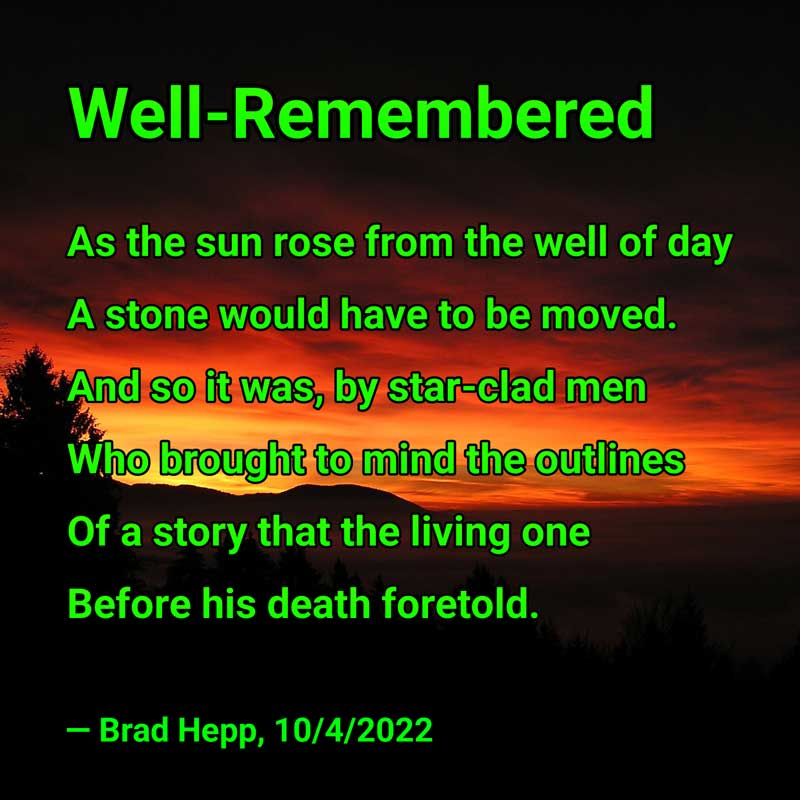
Commentary
DON’T TRY THIS AT HOME
In this poem, I’m doing two things that are generally discouraged. First, I’m playing with the Greek idioms that Luke used in his telling of the Resurrection. “At early dawn” in Luke 24:1 is literally “at deep dawn” (ορθρου βαθεωσ, orthou batheos). “In dazzling clothing” in 24:4 is literally “in clothing flashing like lightning” (εν εσθητι αστραπτουση, en estheti astraptouse). I pushed lightning to its root: aster = star. OF COURSE, THIS IS GENERALLY FOOLISHNESS. Translating idioms is not a matter of dissecting phrases down to their literal components. Imagine how “knock your socks off” would be translated into another language if the translator were translating word-for-word!
The second thing I’m doing — more successfully in my head than in the poem — is relating New Testament events to Old Testament events. Where, in the Old Testament, was a stone removed for a woman by a man? One place is Jacob’s initial meeting with his bride-to-be Rachel (Genesis 29:1-10). Does that story have anything to do with the Resurrection account? PROBABLY NOT. However, probably not isn’t the same as definitely not.
I say “don’t try this at home.” Don’t make too much of literal meanings of words, or of slight coincidence. But DO THIS: read the Bible with heightened vigilance and imagination. When you encounter stories with wells, or stones, or swords, or angels, or fire remember: the Author was there; often, if not always, He was a character in the story. And He has a long memory.
(background photo by “ernie” on Pixabay)
